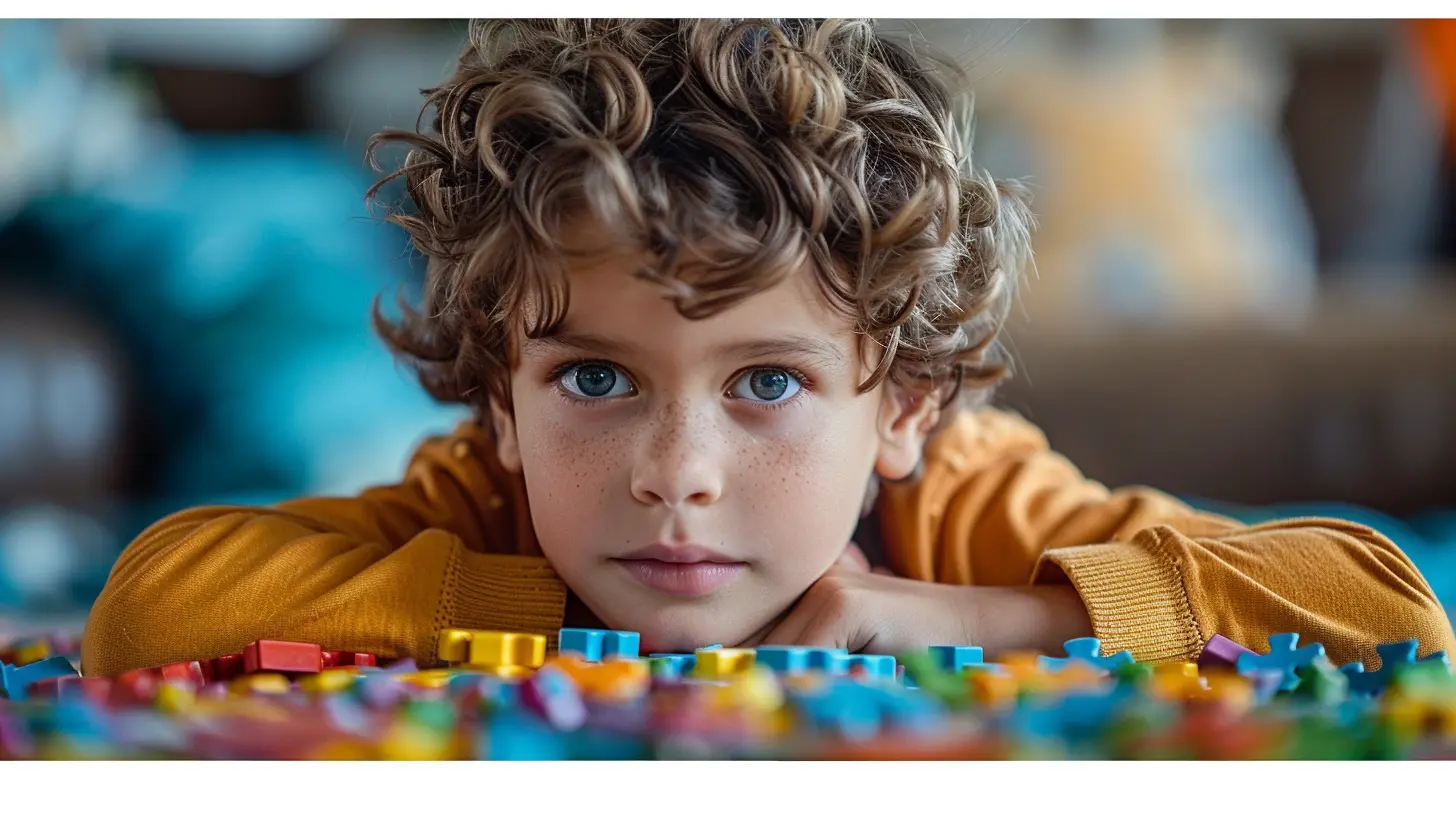Attention and Focus: How to Help Kids Improve Cognitive Skills
6 June 2025
As parents or educators, one of the biggest challenges we face is helping kids develop strong attention and focus. In a world buzzing with distractions—hello, smartphones, video games, and endless YouTube videos—getting kids to concentrate on schoolwork or even a simple conversation can feel like an uphill battle.
But here’s the good news: Focus isn’t just something kids are born with; it’s a skill they can develop. With the right strategies, patience, and a little creativity, we can help children sharpen their cognitive abilities and enhance their overall learning experience.
So, how do we do it? Let’s dive into some fun, practical, and science-backed ways to boost attention and focus in kids! 
Why Is Attention and Focus So Important?
Let’s be real—without focus, learning becomes a struggle. Whether it’s paying attention in class, finishing homework, or even playing a board game, concentration is key. Attention and focus impact:✔ Academic performance
✔ Problem-solving skills
✔ Emotional regulation
✔ Memory retention
✔ Social interactions
When kids have trouble focusing, they might struggle in school, feel frustrated, and lose confidence. But don’t worry! With a few adjustments, we can make a huge difference. 
Common Reasons Kids Struggle With Focus
Before jumping into solutions, let’s first understand why kids might have trouble paying attention. Some common reasons include:1. Too Many Distractions
We live in a noisy world. Between TV, video games, and social media, kids today are constantly exposed to distractions that pull them in a million directions.2. Lack of Physical Activity
Believe it or not, movement plays a huge role in cognitive function. Kids who don’t get enough exercise tend to have a harder time concentrating.3. Poor Sleep Habits
A tired brain is a sluggish brain. Lack of sleep severely impacts a child’s ability to focus and retain information.4. Unstructured Environment
Children thrive on routine. Without structure, their attention can wander, making it difficult for them to complete tasks.5. Diet & Nutrition
Ever heard the phrase "you are what you eat"? A diet high in processed sugars and low in essential nutrients can diminish focus and cognitive function.6. Learning Differences
Some children may struggle with focus due to ADHD, dyslexia, or other learning differences. Recognizing these early on can help create supportive strategies tailored to their needs.
Effective Ways to Improve Attention and Focus in Kids
Now that we know why kids might struggle with focus, let’s talk about some powerful ways to help them develop this crucial skill.1. Establish a Structured Routine
Consistency is key! Set up a daily schedule that includes homework, playtime, meals, and bedtime. A structured environment helps kids know what to expect, reducing anxiety and increasing focus.Pro Tip: Use a visual schedule with pictures and timers to make routines easy to follow, especially for younger children.
2. Encourage Physical Activity
Movement helps get the brain in gear. Activities like running, jumping, or even just stretching can enhance cognitive function.✔ Let them play outside
✔ Try yoga or stretching exercises
✔ Engage in sports or dance
✔ Use short movement breaks during study sessions
3. Limit Screen Time
We all love a little screen time, but too much of it can overload a child’s brain, making it harder to focus. Set realistic screen limits and encourage more hands-on activities like reading, puzzles, or outdoor play.4. Use the Pomodoro Technique
This technique isn’t just for adults! The Pomodoro Method involves working in short bursts (about 25 minutes) followed by a 5-minute break. This helps reset attention and keeps kids engaged without overwhelming them.5. Make Learning More Interactive
Let’s face it, traditional learning can be boring. Spice things up with interactive methods:✔ Turn lessons into games
✔ Use hands-on activities like building blocks or science experiments
✔ Incorporate storytelling to make information more memorable
6. Encourage Mindfulness and Deep Breathing
Mindfulness isn’t just for yoga lovers—it’s a powerful tool for kids too! Simple mindfulness exercises can help children improve concentration.✔ Try deep breathing exercises before homework
✔ Use guided meditations designed for kids
✔ Practice gratitude by having them list things they’re thankful for
7. Provide Healthy Brain-Boosting Foods
Nutrition plays a massive role in cognitive function. Fuel your child’s brain with foods rich in omega-3s, proteins, and vitamins.Great brain foods include:
✔ Nuts and seeds
✔ Fish (like salmon)
✔ Eggs
✔ Berries
✔ Leafy greens
Oh, and don’t forget to keep them hydrated—dehydration can cause brain fog!
8. Encourage Breaks and Free Play
If you’ve ever seen a child bounce off the walls after too much desk time, you know the importance of breaks. Allow kids to have unstructured, creative playtime—it helps refresh their minds and boosts focus when they get back to learning.9. Create a Distraction-Free Study Environment
Where kids do their homework matters! Set up a quiet, clutter-free space with minimal distractions. Keep it simple:✔ A well-lit room
✔ Comfortable seating
✔ No TV or loud noise
✔ A tidy workspace
10. Use Positive Reinforcement
Praise works wonders! When kids stay focused, let them know you appreciate it. A small reward system (stickers, extra playtime, or a special treat) can keep them motivated.11. Teach Goal-Setting Skills
Help kids set small, attainable goals. For example, instead of saying, "Finish your math homework," say, "Complete five problems, take a break, then do five more." This makes tasks feel manageable and less overwhelming.12. Be Patient and Supportive
Every child is different. Some may struggle with focus more than others, and that’s okay! The key is to be patient and continue offering support in ways that work best for them.
Final Thoughts
Helping kids improve their attention and focus isn’t about making them sit still for hours—it’s about giving them the right tools, habits, and support to succeed. By incorporating movement, proper nutrition, structure, and brain-boosting activities, you can set your child up for lifelong success.So, the next time your little one struggles to concentrate, remember: patience, consistency, and a little creativity go a long way. You’ve got this!
all images in this post were generated using AI tools
Category:
Cognitive DevelopmentAuthor:

Eliana Burton
Discussion
rate this article
2 comments
Poppy Cox
Kids focus better with snacks, dance breaks, and giggles!
June 9, 2025 at 3:30 PM

Eliana Burton
Absolutely! Incorporating snacks, dance breaks, and giggles can enhance engagement and make learning enjoyable, ultimately boosting kids' focus and cognitive skills.
Seth Snow
Great tips! Incorporating games can really boost kids' focus effectively.
June 6, 2025 at 2:56 AM

Eliana Burton
Thank you! I'm glad you found the tips helpful. Games can indeed make learning more engaging and enhance focus!


